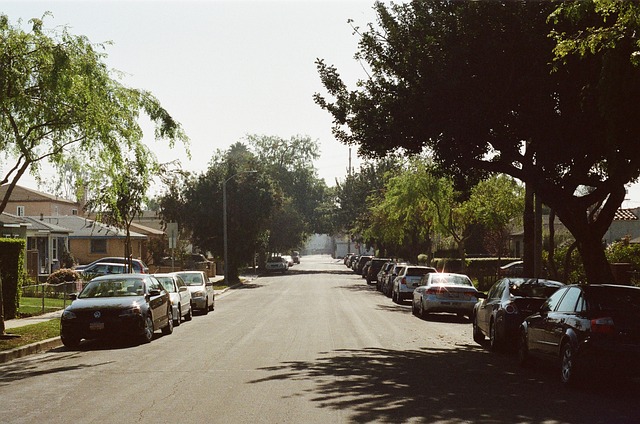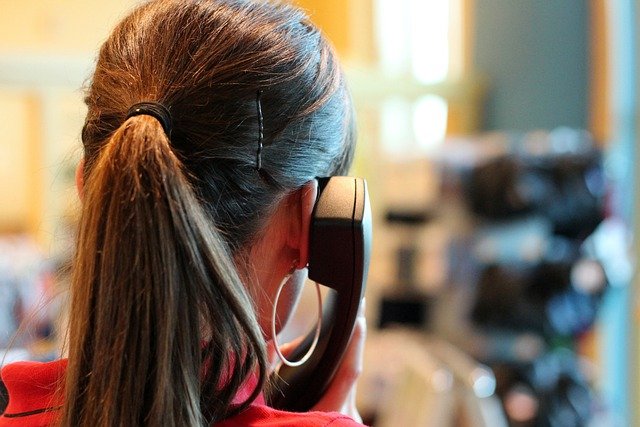What Can I Do if My Neighbor is Recording Me
Michelle Wilson - October 25, 2023

In an age when everyone is on their phone, it is not uncommon for a neighbor to exhibit a pattern of recording their life, occasionally capturing you or your family. Alternatively, in a less obvious scenario, your neighbor might install security cameras that consistently focus on your home. According to online data, around 51 million households have a video surveillance system, with 37% of homes having a video doorbell. With many opportunities to capture your actions on camera, you might wonder if it is legal for your neighbors to do this and, if so, how you can respond.
Table of Contents
Understanding Situations Where Your Neighbor Might Record You
In most cases, your neighbor has the legal right to have security cameras on their property, even if it happens to face you or your property. However, it’s important to understand that your neighbor does not possess the right to record you or anyone else without consent, particularly on areas of your property where an individual should reasonably expect privacy. Fortunately, if you recognize someone is recording you, you can ask to see your neighbor’s camera fees, ask them to stop and seek direction from relevant authorities when necessary.
How Do You Verify If Someone Is Recording You
Realizing that someone is secretly videotaping you can be challenging to detect. Some common indicators include spotting unusual or concealed cameras in your vicinity, noticing unexplained blinking lights or unusual devices, or recognizing a hidden camera lens within your surroundings. Suspicious behavior from individuals, such as furtive glances at their electronic devices or positioning them inconspicuously towards you, can also raise concerns. Additionally, unexpectedly finding footage or recordings of yourself in a private setting may indicate unauthorized video surveillance.
Trusting your instincts and being vigilant about your surroundings can help you identify when someone might be secretly videotaping you. Online data from a privacy and surveillance study shows that individuals who acted on their instincts were right in 70% of the cases. Therefore, although instinct alone isn’t a tell, it might be enough to continue your investigation.
Collecting Evidence
In uncomfortable situations, the absence of tangible evidence often leads to disputes becoming a matter of conflicting testimonies. Lacking substantiating proof can complicate matters and leave you without a clear resolution to address your neighbors’ unwarranted recording activities.
Maintain meticulous records, including dates and times, when you observe your neighbors recording you. This documentation can serve as valuable support should you choose to pursue legal action regarding the matter in the future.
Understand Their Intentions
Along with evidence, you will likely want to consider your neighbor’s intent, especially if the situation escalates to the point you need a restraining order. Consider that if you run a background check on your neighbor and find they have a history of disputes or conflicts with others in the past, you might learn if there are restraining orders or legal actions related to harassment or privacy violations and if you might be at risk by not taking action.
Ask to See Your Neighbor’s Camera Feeds
If you are worried about your neighbor’s security cameras and their potential intrusion into your privacy, a polite and proactive approach is often the best. One way to alleviate your concerns is to ask your neighbor if you can view their camera feeds. Doing so gives you insight into precisely what their cameras are capturing. In some cases, individuals who thought their neighbors were recording them found their home or yard was not as clear in their footage as they once thought.
Open Dialogue as a Resolution
At times, resolving an issue can be as straightforward as engaging in a direct conversation. Take, for instance, a situation where your neighbors are recording you, causing you discomfort. In such cases, addressing the matter directly with them is often beneficial.
However, it’s crucial to do so cordially and non-confrontational when approaching your neighbors. Strive to maintain a friendly tone to avoid escalating conflicts within the neighborhood and to prevent neighbors who may already disregard your privacy from feeling compelled to continue recording you.
Ask Your Neighbor to Reposition Their Camera
After reviewing their camera feeds, if you remain uncomfortable with what your neighbor is recording, you can approach them with a request to reposition their camera. Remember that, under most circumstances, your neighbor is not breaking the law (provided they aren’t recording inside your home). However, explaining your discomfort to your neighbor is worth it, as they may be willing to accommodate your request.
Adjust Motion Detection Settings
It’s also worth discussing with your neighbor whether their camera operates on a continuous recording basis or if it relies on motion detection triggers. In the latter scenario, your neighbor can modify their camera’s settings to adjust the motion detection field. By narrowing the field to their property boundaries, you can ensure that your movements on your property won’t trigger recording alerts. This cooperative approach can help maintain your privacy while respecting your neighbor’s security needs.
Explore Privacy Masks
Many modern security cameras come equipped with a useful feature known as “Privacy Masks.” This feature enables users to obscure specific areas of their camera feeds, effectively blocking them from view. If your neighbor’s camera includes this functionality, consider suggesting they overlay a privacy mask over your home. This simple step can go a long way in safeguarding your property from their camera’s view while allowing them to monitor their surroundings.
Initiate a Formal Complaint
When you’ve exhausted alternative approaches, such as engaging in discussions with your neighbors or making adjustments to your property, or if you simply wish to end the invasion of your home’s privacy, filing a formal complaint becomes an option. To initiate this process, you must visit your local municipal office and give them a detailed account of your situation. Once again, any supporting evidence you possess can significantly strengthen your case.
Once you submit your complaint to your county authorities, they will commence an investigation to determine whether your neighbor is indeed in violation of privacy laws. Violations of these laws may result in fines or legal consequences like imprisonment.
Move Away
In extreme circumstances, relocating can be considered a final option. While such a decision may appear drastic, it underscores the significance of peace of mind and well-being. Sometimes, the intangible value of feeling safe, secure, and at ease in one’s home can outweigh any financial or logistical considerations associated with moving. Ultimately, you should base your decision on relocating to a deep-seated need for tranquility and an environment where privacy and comfort are a priority.
Resolving The Situation
Your neighbor possesses full legal entitlement to record your backyard and property, provided they refrain from recording areas that breach reasonable expectations of privacy laws. In cases where your neighbor’s cameras point at areas where you should have privacy, you can pursue legal remedies. Nonetheless, unless a threat to your physical safety is evident, attempting an amicable resolution by engaging in dialogue with your neighbor is generally advisable.












